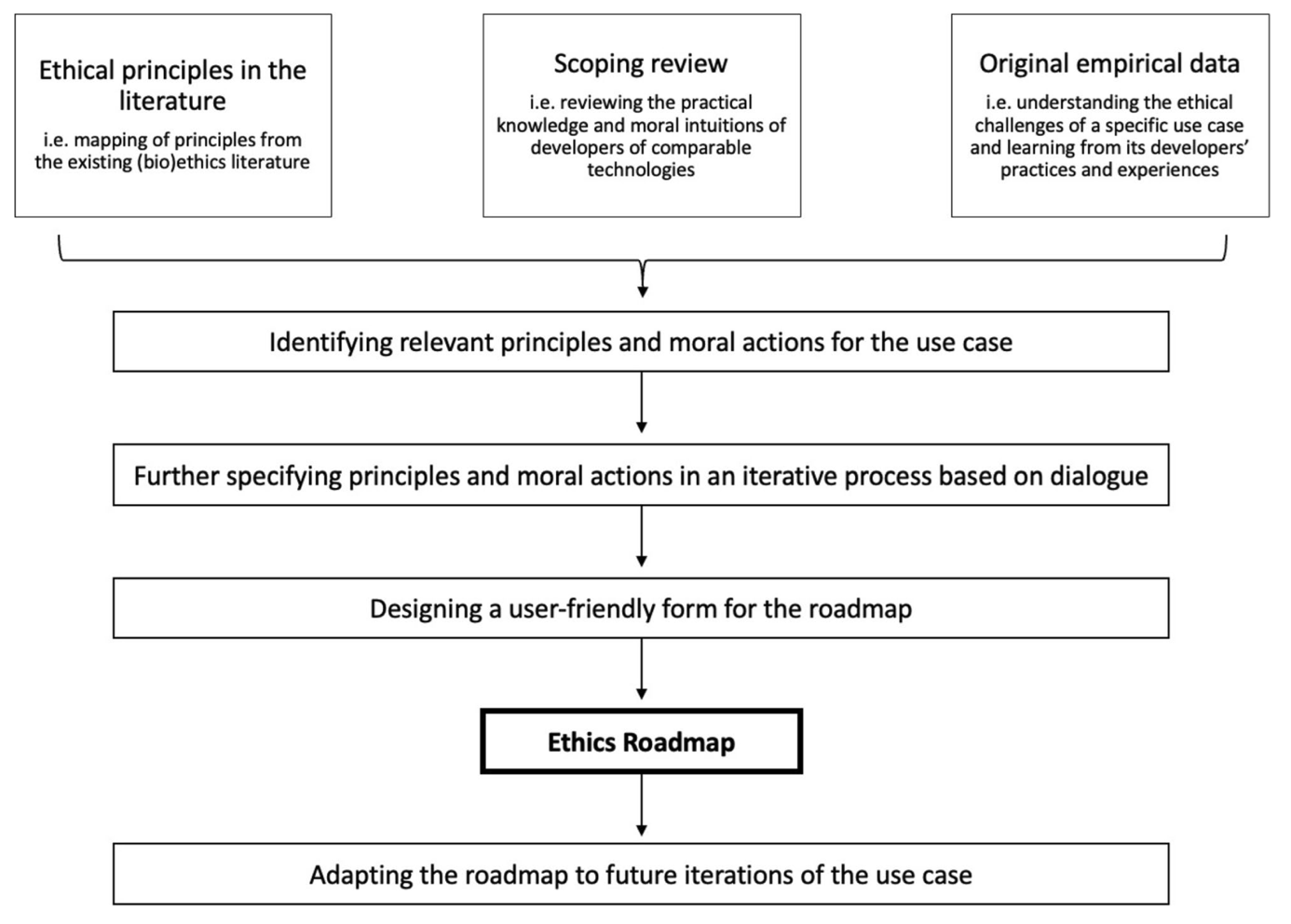publication
Written by
Wanda Spahl

Our new open access article introduces a method for integrating ethics into the development of digital mental healthcare technologies: the Principle-Based Empiricall yGrounded Roadmap Approach (PERA). Drawing on our experiences in and learnings from the ASPbelong project, PERA combines ethical principles from the literature, insights from developers of similar technologies, and original empirical data on the creation of the first ASP prototype, Lina. Together,these elements form a practical and adaptable ethics roadmap.
To ensure ethical reflection was part of Lina’s development, and to create an ethics roadmap that future ASP versions and similar mental health games can build on, ethics researchers were involved throughout the entire process. This included consultation methods such as one-on-one interviews with the developers of Lina about their daily work, difficult decisions, and moments of pride. It also comprised of dialogical methods, where ethical challenges and ways of addressing them were discussed together during workshops and other exchange formats.
Although PERA was developed for ASP, it is designed to be transferable to other emerging digital mental health technologies. It is especially useful in projects where the technology is already well-defined (for example, building on a validated proof-of-concept), where co-development with users and stakeholders is facilitated by the project team, and where development continues into future iterations even after ethicists are no longer directly involved.
The approach fosters ethical reflection among developers and yields the concrete outcome of an ethics roadmap for similar future projects.
Spahl,Wanda and Giovanni Rubeis. 2025 "Integrating Ethics in Digital Mental Healthcare Technologies: A Principle-Based Empirically Grounded Roadmap Approach." Medicine, Health Care and Philosophy.




Funded by the European Union. Views and opinions expressed are however those of the author(s) only and do not necessarily reflect those of the European Union or the European Health and Digital Executive Agency (HaDEA). Neither the European Union nor the granting authority can be held responsible for them.

This work is co-funded by UK Research and Innovation (UKRI) under the UK government’s Horizon Europe funding guarantee [grant numbers 10076369, 10077956, 10079657, 10083622, tbc].

This work is co-funded by UK Research and Innovation (UKRI) under the UK government’s Horizon Europe funding guarantee. Grant numbers: 10077933 (University of Birmingham), 10076369 (Make Real), 10077956 (The Unicorn Theater), 10079657 (Queen Mary University of London), 10083622 (Adam Barnard).